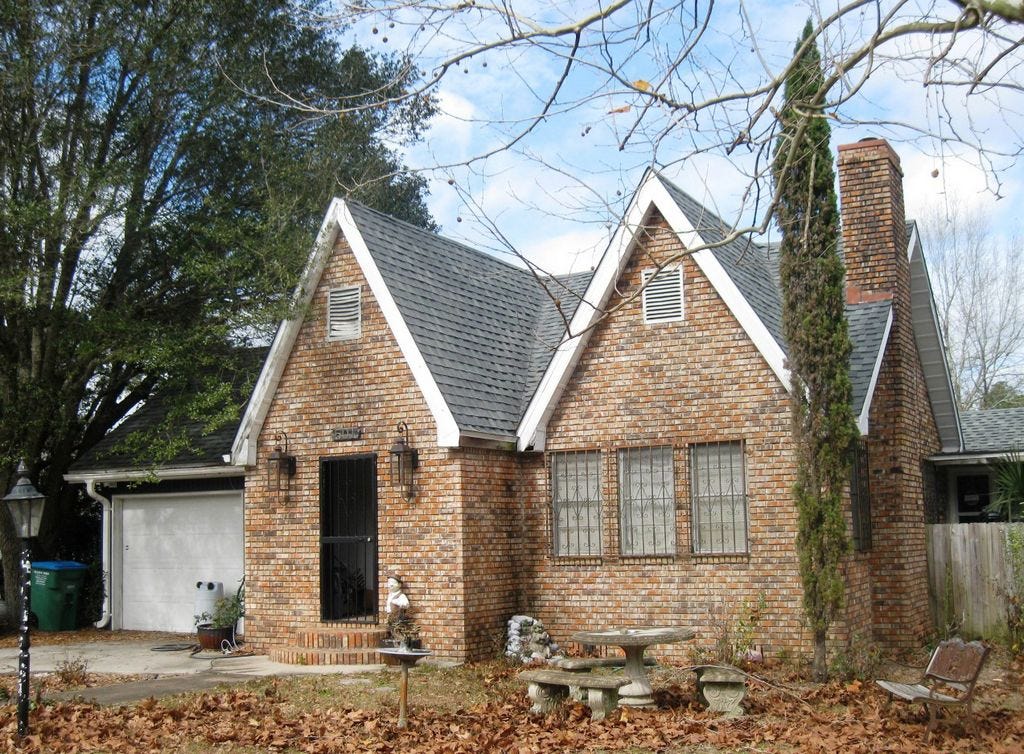
CRESTVIEW — Okaloosa County residents claimed more than $2 billion in homestead exemptions for 2014.
But that's just some of the exemptions property owners collectively could have claimed.
Many people are unaware of exemptions they qualify for, Property Appraiser Pete Smith said. That's why it's important for taxpayers this year to know their options — because March 1, a key deadline, is fast approaching.
An exemption removes part of a property's value from taxation, which lowers the tax.
People often learn about exemptions when they buy property — "usually the Realtor will tell them the first time around," Smith said.
But if residents don't hear the information then, they may never know their options. “There’s no reason to know unless somebody tells them," he said.
The Florida Legislature periodically adds exemptions to a list that includes provisions for senior citizens, disabled people, blind people, widows and widowers, deployed military members and disabled veterans.
Such exemptions help retirees, like Crestview Air Force veteran Bob Allen and his wife, Gigi, manage their household finances. “We use it, absolutely,” Allen said. “Let’s face it … every little penny counts.”
Pearl Gutary said after her husband, Charles, died, she applied for a widow exemption. She had already claimed the $25,000 senior exemption.
“My son told me about it,” she said. “$500’s not much but I take every cent I can. Everything’s so expensive, and I’m on a fixed income.”
Under a homestead exemption, a property value's first $25,000 is untaxed; this applies to all property taxes, including school district taxes. An additional $25,000 exemption applies to non-school taxes on a home’s assessed value between $50,000 and $75,000.
The exemption applies to a taxpayer’s permanent residence; seasonal residents, those who rent out their home, and people who already claim a property tax exemption in another state are ineligible.
For those who qualify, the exemption can save taxpayers $600 to $650 on their annual ad valorem taxes, according to Smith’s office — that's more than half of some residents' tax bill.
Amendment 10, the “Save Our Homes” cap on a property’s assessed value, kicks in the year after a homestead exemption is applied for, Smith’s website states.
“As long as the homestead remains in effect, any change from the prior year's value will not exceed 3 percent or the percentage change in the Florida Consumer Price Index, whichever is lower,” it states.
The state also has exemptions for active duty servicemen and veterans.
When a member of the military deploys or goes on temporary tour of duty orders, if family follows, and they rent out the home during the service member’s tour, they can keep the exemption, Smith said.
But if civilians get a temporary transfer out of town, they lose the exemption if they rent out their home, he said.
Over the years, the state legislature added more exemptions for military members deployed during the tax year, and for disabled veterans.
Property owners must apply for the homestead exemption, and any other exemptions and discounts, at property appraiser offices in Crestview or Shalimar.
Each exemption requires specific documentation; the appraiser office's website lists the requirements, Smith said.
Once an exemption is granted, residents needn't reapply, year to year, unless they sell their homes or move to a new permanent residence.
But just filing that first time is the biggest challenge, Smith said.
“March 1 is the statutory deadline,” he said. “A lot of people, when they hear March 1st, they hear March 31st.
"Then, it’s too late.”
In 2015, Okaloosa County residents collectively claimed these amounts of tax exemptions the previous year:
●Widows/widowers: $1,930,894
●Disability: $178,023,096
●Homestead: $2,080,340,162
●Low-income senior: $34,582,681
●Senior: $19,367,735
●Veteran percentage disability: $8,341,737
●Veteran 100 percent disabled: $1,440,815
●Deployed service member: $16,001,788
Non-residential exemptions claimed:
●Government exemptions: $1,712,708,079
●Institutional: $250,205,858
●Industrial: $2,612,455
—
FLORIDA HOMESTEAD EXEMPTIONS
The Florida Homestead Exemption provides up to $50,000 in tax exemptions for residents’ permanent homes.
The state also offers these exemptions:
●Senior exemption: $25,000
●Widow/widower: $500
●Total and permanent disability: exempt from all taxes
●Total and permanent veteran’s service-connected disability: exempt from all taxes
●Disabled or blind (non-military or veteran): $500
●Disabled veteran: $5,000
●Disabled veteran, over 65, based on percentage of disability that is combat related, according to Veterans Affairs
●Low-income senior citizen discount on city or county taxes depending on residency, up to $50,000
●Deployed military discount, based on number of days deployed outside the United States during the prior calendar year
Source: Okaloosa County Property Appraiser
—
DID YOU KNOW?
●Applicants must be Florida residents as of Jan. 1 for the year in which they apply for the homestead exemption
●Homeowners must apply for the first homestead exemption in person at the Okaloosa County Property Appraiser’s office at 302 Wilson Street N., Crestview.
Source: Okaloosa County Property Appraiser
—
DEADLINES
March 1 is the deadline to file for the Florida Homestead Exemption. But state law requires filing these supporting documents by Jan. 1.
●Florida drivers license
●Florida vehicle registration(s), including military members
●Non-U.S.-citizen Florida Declaration of Domicile
●For U.S. citizen children of non-citizens, proof of registration in a Florida school
●For deployed military, military ID or Florida driver’s license showing Florida residence
Contact the Okaloosa County Property Appraiser’s Office, 689-5900, or see www.okaloosapa.com for complete requirements
EXEMPTIONS CLAIMED
This article originally appeared on Crestview News Bulletin: Several Okaloosa property tax exemptions are available, but unused
